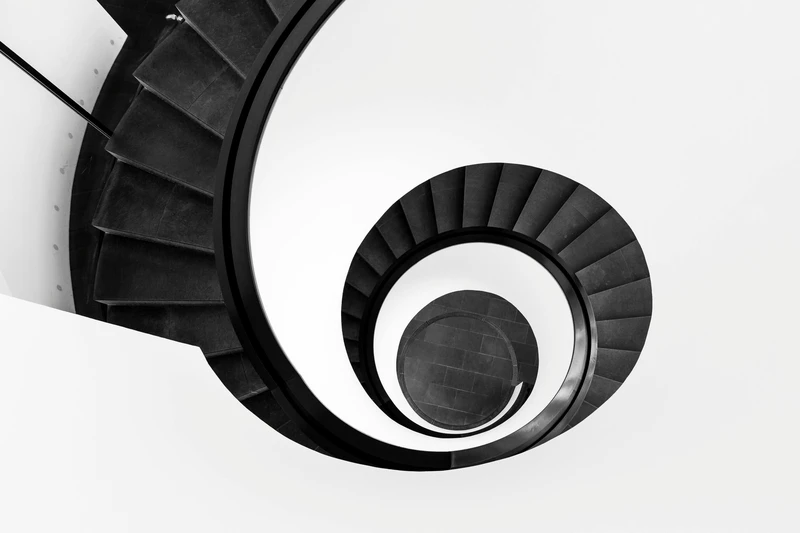
Core Image from GothamChess YouTube Channel
Ding-ness
Disclaimer: The day after I wrote this blog (January 21), Levy himself compared himself to Ding, which I found very funny. However, the idea was original. :D
While none of us calls it that, we all encounter Ding-ness, both in ourselves and others. I mean no disrespect when I call it that-Ding is a tremendous player
who will go down in chess history for becoming World Champ and taking down Magnus in the 2019 Sinquefield Cup. However, he is the most glaring example of the condition I will outline in this article. Hope you find it helpful!
GothamChess
While clickbaity and sometimes annoying, Levy Rozman has done an incredible number of things for chess, and his videos are extremely entertaining. The face of chess for many, he decided to aspire to reach the GM title about 7-8 months ago--the ultimate title in chess. While starting strong, he began to stumble and now his last few tournaments were disasters, to say the least. During watching his heartbreaking discouragement, I realized that I had seen something similar before-Ding Liren. Though on a lesser level, I had also seen something similar with Anish Giri recently, and with Fabiano Caruana back in 2021-2022, though those cases were more mild and slightly different in cause. This provoked me to examine this "Ding-ness" as I called it. As I pointed out in the subtitle, I had three primary questions:
- What is Ding-ness?
- What causes Ding-ness?
- How to get out of Ding-ness?
Let's dive right in!
What is "Ding-ness?"
Ding-ness would be in my opinion an extended slump in performance and rating for mental and psychological reasons.
3 months or 3 years would both qualify for "Ding-ness", if it is shown to be consistent, at least for a while. I would argue this would be different from simply growing weaker with age or from not training. This would be a specific mental hurdle that obstructs a player from progressing in strength or playing well.
Photo by Katrina Berban on Unsplash
The Cause
What causes Ding-ness? Here are some reasons I found:
1. Excess Scrutiny
Both for Ding and for Levy, this was probably the biggest one. As Levy repeated many times, he could not bear all the attention and critique given to all of his games instead of him being able to play relaxed. During the game, he would already be thinking about what all the comments would be saying, or what Hikaru would criticize in his recap.
For Ding, this was also quite similar. While he had already not been in great shape before the World Championship for the other reasons we will discuss, his issues were magnified after the fact. Once he was World Champion, he knew everything he did and played would be evaluated in that light, increasing the pressure by a large amount.
2. Loss of Motivation
This was another we could see with Ding, but also with Anish and Fabi with their respective struggles. Once you have achieved World Champion, there is not much left to achieve. While for some, such as Magnus, this lack of motivation impacts them less, for Ding it was major. Even before the Candidates 2022 Ding was already barely motivated and would rarely play, and afterwards the problem increased tenfold.
Fabi's phase of Ding-ness caused him to lose motivation and, in his words, "not even look at chess for a year except for during tournaments." This caused him to decrease rapidly from over 2800, even to edging out of the top 10! His lack of motivation caused his mindset to shift in such a way that he declined drastically, but when he regained motivation (from watching the Ding-Nepo match) he also regained his former level.
Anish has had a similar drop, though more recently. From being a constant top player from pretty much 2015 to 2023, he then spiraled out of control from 2775 to 2730.
While this might not seem that significant to us, this is the difference from being a "top top" player to being an "over 2700 very strong GM". While Anish has been less open about his struggles, from what he has said it seems to be a similar issue. With money depending less on performance with the appearance of content and Chessable, and having a family and other commitments motivation decreases. It is harder to find chess important enough to spend multiple hours a day analyzing a vague line of the Sicilian.
3. Tilt
The final cause I have identified for causing Ding-ness is tilt. Everyone has one bad tournament every once in a while, but the ability to keep that from declining to 5 and then 10 is not easy. For every case of Ding-ness I can think of, one bad result followed another-which was obviously also caused by other reasons as outlined above, but tilt definitely didn't help!
If you think I missed any reasons, let me know in the comments!
How to Fix Ding-ness?
It is clearly very hard to snap out of such a horrible run. As we can all empathize with Levy, he's trying very hard, but so far, he has been unable to do so. Here are some ideas:
1. Change
If you keep doing everything the same way, your results will probably keep continuing the same way. This is why I think the idea of Hans coaching Levy is so great, because at least it is something new and different. For Ding, what helped him play better was playing in a different atmosphere--the World Championship! While we still witnessed his issues continue, his games, especially game 12, were totally different from his earlier performances. As he was put in a different atmosphere than the average super tournament, he managed to improve his form.
2. Find your Reason
As GM Avetik Grigoryan outlines in his article To Get Better at Chess, Start With WHY if you want to improve, you need to find something that keeps you motivated, that gives you passion to press on, even despite the pain.
If you have no primary reason to keep going, you won't.
3. Get Help
Having a friend, training partner or a mentor to help you press through can make all the difference. We are social creatures, and even the introverts among us can't do it all alone. Having someone give you valuable help, whether that is in person, through a video or course, or in a book, can make a huge impact.
Conclusion
Hopefully if you are in a slump of Ding-ness you will be able to snap out of it-and hopefully Levy and Ding do too! If you have any thoughts, you want to add that you think I was wrong about or left out, drop them in the comments below! Since only less than 3% of you like this blog, I would appreciate if that number upped a bit! If you need help to get out of your bad form, I recommend checking out ChessMood who not only have great coaches to help you get through that period, but who also have a great community of fellow chess players (and they also have an AI chess coach...). Cheers!
You may also like
 ebk1976
ebk1976Where did the Word "Chess" Come From?
And the origin of well known chess ideas terms. ebk1976
ebk1976The 12 Best Chess Players of All Time
Who never became world champion. Zhrakos
ZhrakosChess Broke My Heart... Here’s Why I Still Can’t Quit
Chess has broken my heart more times than I can count. But the worst? Losing to a 12-year-old in a r… ebk1976
ebk1976How to Find a Great Chess Coach
How I did it and how you can do it too ebk1976
ebk1976Aging in Chess
The age too old for gold. ebk1976
ebk1976